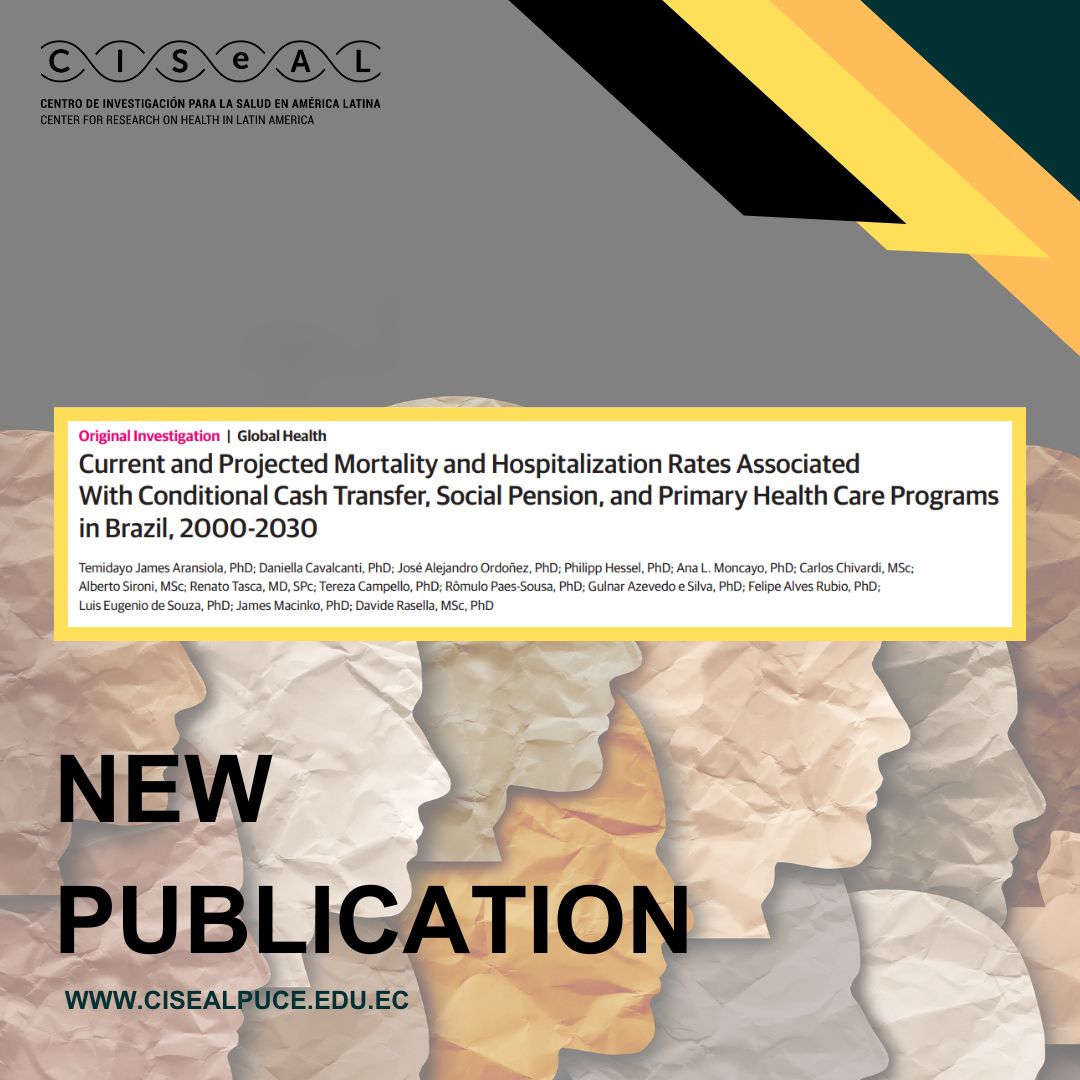 In her latest article, CISeAL researcher Ana Lucia Moncayo makes an essential contribution to research into the effects of social programs on public health in Brazil. Ana Lucia and her team study the impact of conditional cash transfer programs, social pensions and primary health care on mortality and hospitalization rates in Brazil between 2000 and 2030.
In her latest article, CISeAL researcher Ana Lucia Moncayo makes an essential contribution to research into the effects of social programs on public health in Brazil. Ana Lucia and her team study the impact of conditional cash transfer programs, social pensions and primary health care on mortality and hospitalization rates in Brazil between 2000 and 2030.
Using a longitudinal ecological model with multivariate negative binomial regression models, the study integrated a retrospective analysis from 2000 to 2019 with dynamic microsimulation models to forecast possible infant mortality scenarios to 2030.
Results revealed that consolidated coverage of the programs studied was associated with reductions in overall mortality and hospitalization rates. Specifically, these programs are estimated to have prevented around 1,462,626 deaths over the period 2004-2019. Furthermore, it is predicted that a mitigation strategy that increases coverage of these programs could prevent 1,305,359 deaths and 6,593,224 hospitalizations through to 2030, compared to budget austerity scenarios that would reduce coverage of these interventions.
These results suggest that the combined expansion of conditional cash transfers, social pensions and primary healthcare could be a viable strategy for mitigating the negative effects of the current global polycrisis in low- and middle-income countries. On the other hand, the implementation of fiscal austerity measures could result in a large number of avoidable deaths.
This study highlights the importance of social programs in public health, and underscores the need for policies that strengthen and extend these interventions to protect the most vulnerable and reduce inequalities in access to healthcare in Brazil and beyond.
We invite you to read the full article on the following link: https://jamanetwork.com/journals/jamanetworkopen/fullarticle/2817857



